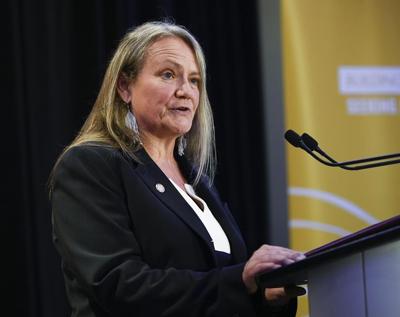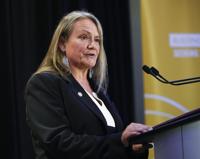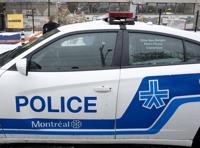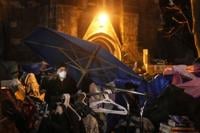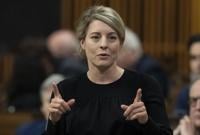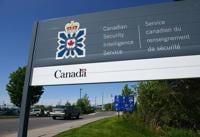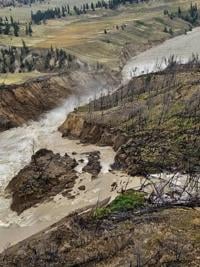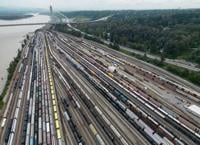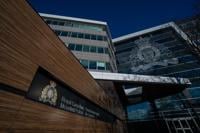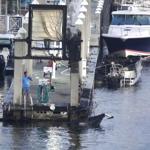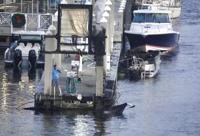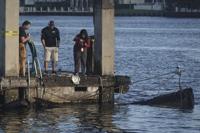OTTAWA - As some private landowners restrict residential school survivors from performing ceremony or searching their properties for possible unmarked graves, a federal minister says Ottawa is open to legislating new protections for the possible burial sites.
Kimberly Murray, who was appointed by Prime Minister Justin Trudeau's governmentto provide it with advice on how to handle such sites, testified before the Senate on Tuesday about her role and the main concerns she says she has heard from Indigenous communities.
"We need access to land," Murray told senators at a committee hearing. "This is what keeps me awake many nights, thinking about how some things could escalate."
She said there is currently no federal law in place to protect suspected gravesites or grant communities access to land that is privately owned but is believed to be home to unmarked graves.
When residential schools were closed, Murray said, the lands they were located on were not turned back over to First Nations or other Indigenous communities ã "the rightful landholders," as Murray put it.
Speaking a separate event, Crown-Indigenous Relations Minister Marc Miller told reporters that many former sites are located on provincial Crown land, and there is "an immense amount of complexity" around who controls such areas.
While some landowners have shown "good faith" in their willingness to help communities, others have not wanted to give up their property or have increased the purchase price when it comes to surrendering their lands, he said.
"There are potential conflict points."
Miller said the government is open to legislating protections of such sites and is awaiting advice from Murray's office.
The final report from the Truth and Reconciliation Commission of Canada, which spent more than five years investigating the residential school system, says that more than 150,000 First Nations, Mûˋtis and Inuit children were forced to attended the government-funded church-run institutions.
It estimated that more than 6,000 children died at these facilities. The üСÜꪤüýò¿Øéóæòêü Centre for Truth and Reconciliation, which archives testimony and other records from that period, maintains a student memorial register that includes more than 4,000 recorded names. However, many experts believe the number to be much higher.
Murray said Tuesday that some landowners have refused to provide access to their properties "even to do ceremony, let alone to search the grounds," adding that her office has had to write letters and meet with landowners to try and convince them otherwise.
"We have landowners that have campers on top of the burials of children, known burials," Murray said. "We don't have any law to put a stop to this."
In her testimony, Murray did not elaborate on specifics, but told senators such lands ought to be protected.
She said that while provinces have various laws that protect lands for different reasons, these are often not enforced and are unlikely to provide cohesive protection for unmarked graves.
"We have a big gap federally in the legislation."
Murray said the only recourse a survivor or community currently has is to go to court.
She pointed to a recent case in Quebec, where a judge granted an injunction after a group of elders known as Mohawk Mothers said the bodies of Indigenous patients of the Allan Memorial Institute and the Royal Victoria Hospital were buried at a site McGill University had slated for redevelopment.
The judge granted Murray intervener status in the case and ultimately ruled that the parties needed to discuss a plan to search the site for graves.
"Do we have to go to court to get injunctions to stop development on lands where there are burials?" Murray asked senators Tuesday.
"There's got to be a better way."
Murray was appointed to her role last June, fulfilling a promise made by Prime Minister Justin Trudeau's government that it would seek independent advice on how to help Indigenous communities that want to search for unmarked graves.
First Nations from across Western Canada and in parts of Ontario have been conducting such searches. In May 2021, the Tk'emlû¤ps te Secwûˋpemc Nation announced it had detected 215 possible unmarked graves at a former residential school in Kamloops, B.C.
That number sent waves of shock, grief and anger rippling through the country and saw Indigenous and non-Indigenous communities renew calls for federal and church authorities responsible for the system to be held accountable.
But nearly two years later, Murray said many Indigenous communities are still battling denialism.
"Every time an announcement of anomalies or reflections or recoveries are made, communities are being inundated by people emailing them and phoning them and attacking them and saying, 'This didn't happen,'" she told senators.
"I sit here and tell you: this happened. I have seen the records. I have seen the photographs of children in coffins. We need to all fight this denialism and it shouldn't be left to the survivors to have to do that."
This report by üСÜꪤüýò¿Øéóæòêü was first published March 21, 2023.

